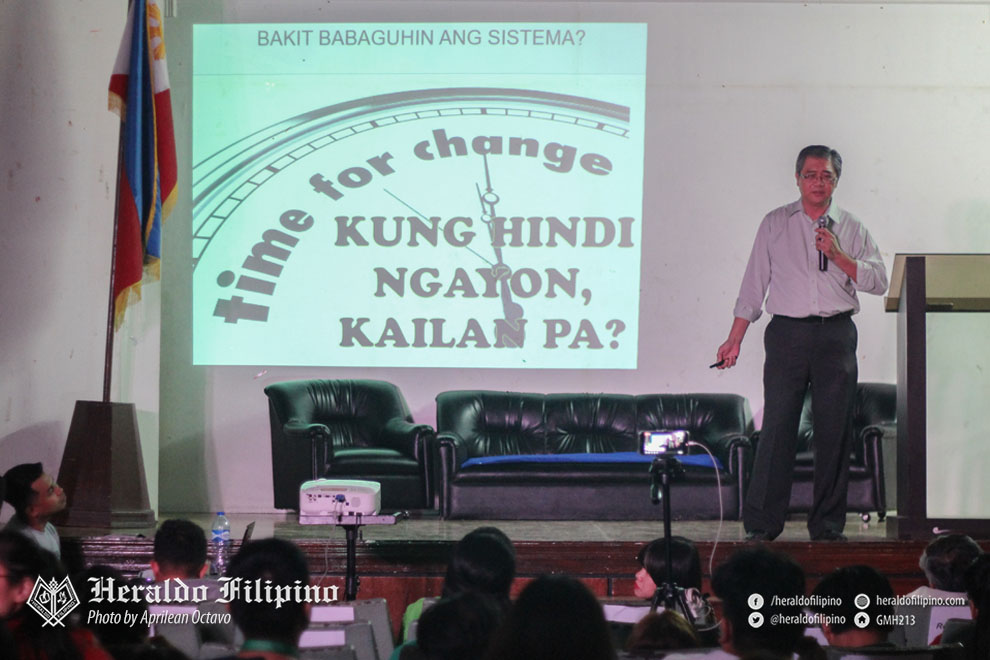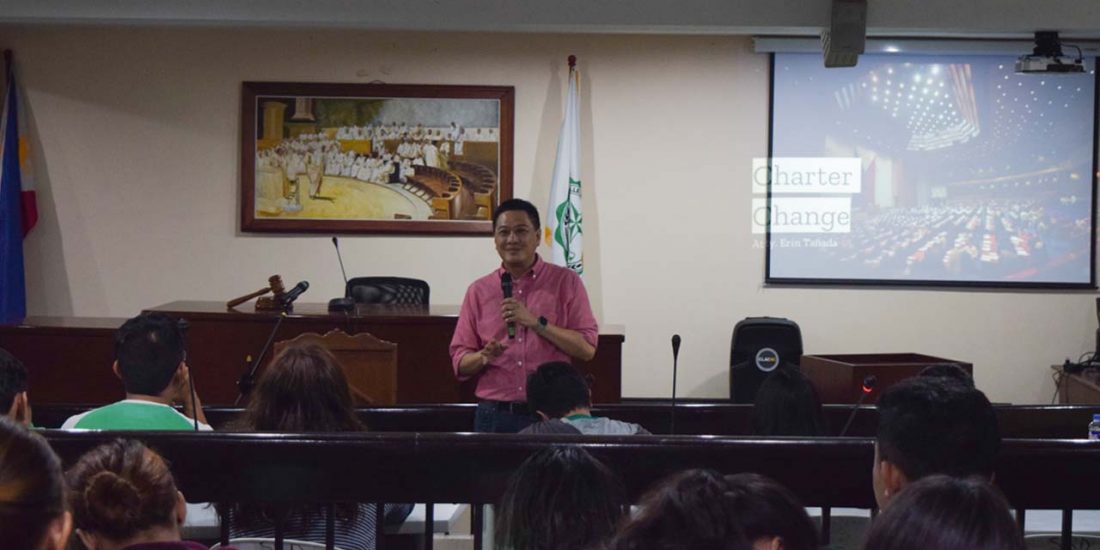fedIn: PHederalism talks in DLSU-D
The Political Science Program Council conducted fedIn: a series of talks which tackles the hows and whys of federalism, aiming to inform the Lasallian community on the proposed government system change in the Philippines. With four invited guest speakers to the event to discuss the pros and cons of federalism, Conrado Generoso, a veteran communications expert, first tackled the pros together with Wendell Tamayo, a Senior Technical Officer and Head of the Technical working group of the Constitutional Commission (ConCom). On the other hand, Atty. Lorenzo Tañada, former representative of 4th district of Quezon Province from 13th and 15th Congress, and Atty. Florin Hilbay, former Senior State Solicitor General, discussed the cons of implementing federalism in our country.
FedIn program head, Celine Lagarde, stated that the event aimed to inform Lasallians with the potential impact of the government reformation. The organizers also clarified that they are not imposing any form of political belief for students rather to give further knowledge on the issue.
Keeping reality in check
To introduce federalism, Generoso made use of vivacious music and a comprehensive method of introduction. This reality check imposes several questions regarding unreal issues in the country that are currently happening. After establishing a truthful reality, the proposed change for the country’s government structure was explained in detail.
“There will always be resistance against change [because] people [generally] do not want to change,” Generoso furthered.
Federalism entails not a centralized type of governance but a power that provides economic independence in the regional sectors of the country. This leads to regions reaping and benefiting from their own resources. Furthermore, federalism would divide the power of national and regional parts of the government but will still have shared powers.
A dilemma of momentous proportions
Tamayo introduced his talk with a question referring to The Trolley Dilemma – a philosophical moral situation wherein a path driven has a fork where there is one person in the left turn of the path and multiple people on the other. The question was established to give a point that people would ideally choose what is for the common good.
Tamayo discussed the proposed draft of federalism with technical citations from the constitutional commission. The design principles of federalism were also in mentioned in his talks and reformations from the current governance to the proposed one. He explained the specific changes to be implemented such as having specialized courts that would expedite judicial processes.

Improvement as a sign of change
According to Atty. Tañada, the Philippine Constitution has been changed multiple times, with the 1987 Constitution, the last revision after the Martial Law, still being used today. Previous administrations have attempted to change the 1987 Constitution, but only this administration has proceeded with the constitutional reformation. Atty. Tañada furthered the possible effects of federalism in the country in line with the constitution, with various controversies attributed to the draft of the ConCom. One of the proposed changes in the constitution will be requiring candidates for higher government positions to attain a college degree, in which Tañada viewed as “anti-poor.” However, Tamayo clarified that there might be possible exemptions to this requirement.
The devil in the details
Regarding the cons of federalism, Atty. Hilbay stated that 2 out of 3 Filipinos are against the implementation of federalism and Charter Change or ChaCha. For Hilbay, Filipinos are more concerned with “gut issues” which are increasing household income and reducing poverty rather than changing the form of our government. He furthered that the contents of the draft of ConCom need to be strengthened. He questioned specific contents of the draft such as the national territory section being weaker than of the current constitution, refusing to mention anything about the West Philippine Sea. “’Yong demonyo nasa detalye,” he furthered with aim to question the credibility of those in power. According to Hilbay, the proposed ChaCha consists of 99% credibility and 1% text—specifying that no matter how well written the draft is, if people in power will meddle with it and favor their personal intentions, it would still be completely futile. He also called out students to be wary of the credibility of those assigned to this matter. Moreover, Hilbay pointed out that the change of government would be expensive, and the transition would be problematic because of the chaotic political atmosphere of the country. Several options were also introduced without the need for ChaCha such as amending the local government code, implementing a federalized budget, and strengthening the regional development council.
fedIn: the hows and whys of federalism is the first part of a series of talks from the Political Science Program Council that would tackle relevant issues in the country.




